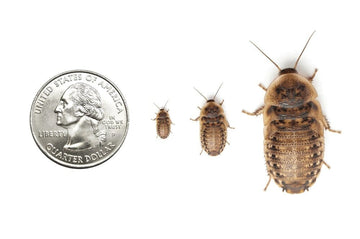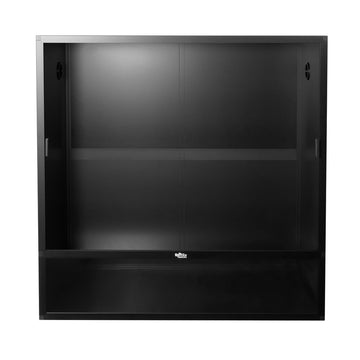Before bringing home any pet, you need to do your research. Especially with reptiles and amphibians, this is perhaps even more important. These species have specific care needs that differ from captive animals like cats, dogs, and other species. Each species of reptile and amphibian has a unique set of needs that need to be thoroughly researched, this could be fun to do for the whole family. Every reptile will need thorough research done to ensure that they suit the needs of your family and that you are able to fulfill their needs. Even though each species have their own needs, here are some tips that will help you give your new pet the best care:
- RESEARCH! We mentioned this above, but doing your research can never be stressed enough. It is imperative that you do your research BEFORE you get your new pet, not AFTER. Some people find that they have taken their new pet home, only to find that they have done inadequate research and are unable to provide the care that their new pet needs. All species are unique, some grow larger than others, some require more time than others and some have some complicated needs when it comes to their husbandry. Make sure to always do thorough research on your pet of choice before bringing them into your household.
- Expanding on the previous tip, if you are considering getting a rescue or rehomed animal, be sure to find out as much as you can regarding the animal's situation and condition. Rescues can be costly and risky due to health issues so be absolutely certain that you are prepared to take in the animal in question and are aware of any health concerns that may be present.
- UVB/UVA Lighting. All reptiles and amphibians have certain needs when it comes to heat and light. UVB rays are emitted by the sun and enable animals to process certain nutrients, specifically calcium which is vital for their health and wellbeing. Without UVB they will not be able to absorb calcium from the food that they eat, most of it will be expelled as waste. In captivity we use bulbs that artificially produce the UVB rays that they need, every reptile and amphibian have different needs when it comes to UVB. Sometimes the equipment used can be costly and owners find themselves ill-prepared for this cost once the animal is already home. UVA is also emitted by the sun and is produced by any visible form of light but depending on the kind of light it is produced in different levels. Some UVA is emitted by the UVB bulbs used and also by the basking bulb as long as visible light is being produced. UVA is vital for your animal as it promotes natural behavior, encourages eating and generally promotes a healthy animal. Both UVB and UVA are essential for the needs of most species of reptile and amphibian so both must be researched thoroughly.
- UVB bulbs need to be replaced every 12 months at least regardless of the kind that is used, some may need to be replaced sooner. Even though the amount of visible light being given off may not change, the amount of UVB produced by artificial bulbs does reduce over time.
- Supplementation is a vital part of caring for any reptile or amphibian, in captivity, we are able to keep our pets just as healthy, if not more so, than when they are in the wild and one reason is that we can supplement their diet with necessary nutrients. Calcium and multivitamin supplements are given with their diet to promote health and wellbeing.
- Temperature and humidity are always important to maintain, each species has different needs when it comes to temperature and humidity and you will need to use equipment that is well suited to measure these.
- Reptiles and amphibians are naturally curious creatures, they want to explore their surroundings and can sometimes put themselves in danger doing so. Using an enclosure that is secure so they can't escape is vital and you can also use locking screen clips to enable you to secure your enclosure of choice so that they cannot escape and are kept safe.
- With any reptile, proper handling is essential, as they are naturally curious creatures this can often result in them making questionable decisions and jumping from places that are too high for them. When holding them be sure that they are fully supported and not held up too high so if they do fall they won't hurt themselves and this can result in your reptile attempting to leap from places they shouldn’t. Holding them up too high risks them falling and hurting themselves. Also, when handling your reptile ensure to wash your hands after doing so.
- You should only handle amphibians if it is necessary. Their skin is fragile and over-handling them can cause them discomfort or their skin to dry out. When handling always ensure your hands are clean and wet.
- Enclosures should be kept out of direct sunlight and also away from windows, this is particularly true for when using equipment that maintains certain temperatures and humidity as doing so can throw your carefully maintained conditions off.
- If you are uncertain of something, then always ask! There are many resources available to you. Something to bear in mind though is that information is sometimes put forward as fact when it is actually opinion. and sometimes it can be difficult to ascertain what may be fact, compared to what may be opinion. Always ensure that you research thoroughly and compare information from trusted sources. There are herpetological societies that can help, and licensed veterinarians are also a great source for information. There are also communities online where you can find others who are sharing their own tried and tested methods.












1 comment
I found it interesting when you said that UVB rays enable animals to process certain nutrients, specifically calcium that are vital for their wellbeing and health. This is a good-to-know trivia for my son because he is interested in visiting a reptile center. He is so interested in exotic reptiles, and we can see how much he loves watching videos about them. Thanks for sharing this. https://www.serpentarium.com.au/